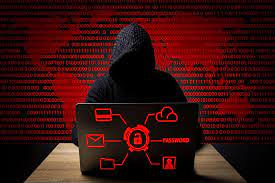The Dark Web is a hidden portion of the internet that offers users a way to access online content and communicate with greater security and anonymity. Unlike the Surface Web, which is easily accessible through traditional search engines, the Dark Web exists on encrypted networks that require special software to access, most notably the Tor browser. This anonymity is crucial for users who need to protect their identity for various reasons, such as whistleblowers, journalists, activists, or individuals living in oppressive regimes where freedom of speech is limited. The Dark Web allows them to communicate, gather information, and express themselves freely without fear of government surveillance or retaliation. One of the primary features of the Dark Web is its ability to mask users’ IP addresses, making it difficult to track their online activities. The Tor network, which is the most popular tool for accessing the Dark Web, uses a technique called onion routing. This involves encrypting data multiple times and passing it through several nodes or relays across the globe.

Each relay decrypts a layer of encryption, revealing only the next destination in the path, ensuring that no single point knows both the origin and destination of the communication. This multi-layered approach provides an extra layer of privacy that is not available on the Surface Web, where users’ activities are typically tracked by their IP addresses. The Dark Web also offers a more secure method for accessing certain websites and tordex services. For instance, individuals can access websites that provide sensitive information, such as leaked documents or communication channels that would be difficult to find on the Surface Web. Additionally, encrypted messaging platforms available on the Dark Web allow users to communicate without revealing their identities. This is particularly beneficial for those living in authoritarian regimes, where internet surveillance and censorship are widespread. However, while the Dark Web serves as a platform for privacy and free speech, it has also become associated with illegal activities.
Due to the anonymity it provides, the Dark Web is often used for illicit transactions, such as the buying and selling of drugs, weapons, and stolen data. Cybercriminals exploit the Dark Web’s encrypted networks to carry out illegal activities without the risk of easy identification. Law enforcement agencies around the world work tirelessly to combat these crimes, but the challenge lies in the difficulty of tracing individuals engaging in illicit activities when their identities are obscured by layers of encryption. Despite its association with crime, the Dark Web remains a vital tool for those seeking privacy, security, and the ability to freely express themselves online. For people facing censorship, government surveillance, or personal threats, the Dark Web offers a secure environment to communicate and access information without fear of exposure. However, users must exercise caution, as navigating the Dark Web also comes with risks, including encountering harmful content and potential legal issues. Nonetheless, it remains an essential part of the broader internet landscape, serving as a crucial resource for maintaining online anonymity and freedom of speech.
